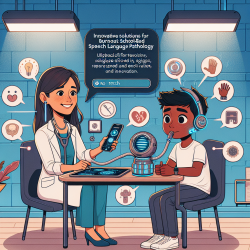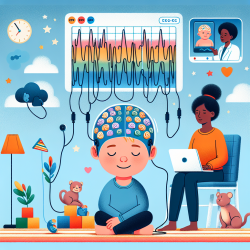Introduction
In the demanding world of school-based Speech Language Pathology (SLP), burnout is a common challenge. With increasing caseloads and diverse student needs, SLPs are often stretched thin. However, innovation in therapy delivery, particularly through online platforms, offers a promising avenue for alleviating this pressure. This blog explores how online therapy services can provide relief and enhance efficiency for SLPs working in schools.
The Burnout Dilemma
Burnout among school-based SLPs is a pressing issue. According to recent studies, over 50% of SLPs report feeling overwhelmed by their workload. The constant juggling of responsibilities, from individualized education plan (IEP) meetings to direct therapy sessions, can lead to emotional exhaustion and decreased job satisfaction.
Innovative Solutions
Innovation in service delivery is crucial for addressing burnout. Online therapy services, like those offered by TinyEYE, are revolutionizing the way SLPs interact with students and manage their workloads. Here are some ways online therapy can mitigate burnout:
- Flexible Scheduling: Online platforms allow SLPs to schedule sessions at times that are convenient for both them and their students, reducing the stress of back-to-back appointments.
- Reduced Travel Time: By conducting sessions online, SLPs can eliminate the time and energy spent traveling between schools, allowing more time for planning and self-care.
- Access to Resources: Online therapy platforms often provide a wealth of digital resources and tools that can enhance session effectiveness and reduce preparation time.
Impact on Special Education
Online therapy not only supports SLPs but also enhances outcomes in special education. By leveraging technology, therapists can deliver high-quality, individualized support to students regardless of geographical barriers. This ensures that all students, including those in remote or underserved areas, receive the speech therapy services they need.
Data-Driven Decisions
Incorporating data-driven strategies into therapy sessions is another way to enhance efficiency and outcomes. Online platforms can track student progress in real-time, providing valuable insights that can inform therapy goals and interventions. This data-centric approach ensures that therapy is not only effective but also tailored to each student's unique needs.
Conclusion
As the field of Speech Language Pathology continues to evolve, embracing innovative solutions like online therapy is essential. These platforms not only offer a practical solution to burnout but also improve service delivery in special education. By reducing the logistical burdens and enhancing the quality of care, online therapy empowers SLPs to focus on what truly matters: creating great outcomes for children.
For more information on how TinyEYE can support your school-based SLP team, visit our website.










